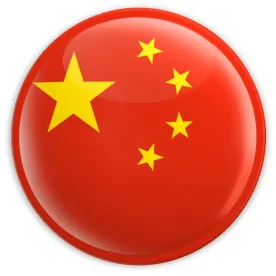In terms of supply chain relationships, China is often alluring. Known as a low cost manufacturing country, China (among other non-US locations) often strikes some industrial buyers as a good place from which to source components, or to assemble finished goods. Chinese contract manufacturers (CMs) are among the largest in the world, and can provide procurement cost advantages as well as certain kinds of technical expertise.
When it goes wrong, though, China can be a bad breakup.
Chinese companies can be notoriously difficult to litigate against. For litigation in the US, Chinese companies are notoriously proficient at evading service of process (even when effectuated correctly). Even if you tag them with service, they often prefer to take a default judgment, and evade enforcement. Even when the Chinese government facilitates enforcement of judgment actions against Chinese companies (probably won’t happen), Chinese companies will often reorganize into other entities to avoid judgment. In short, sometimes if Chinese (or other foreign) components have quality issues that affect the supply chain, the US buyer will end up holding the bag.
For example, recent news is full of reports about litigation against Lumber Liquidators, a US company that sells residential flooring. Problem is, Lumber Liquidators got much of it flooring from Chinese suppliers, whose materials are alleged to give off many times over the California state standard level of formaldehyde emissions, impacting thousands of homes in the US. In June 2015, more than 100 federal court lawsuits were transferred for consolidated pre-trial treatment to the US District Court or the Eastern District of Virginia. Lumber Liquidators also faces securities class actions and possible federal charges, and its CEO has been pressured to resign. Lumber Liquidators’ future is unclear, but what is likely is that it will be very difficult to seek legal relief against its Chinese suppliers.
A few companies have figured out how to do it, though. In a lawsuit seeking to shut down illegal Chinese counterfeiting operations, North Face and other US retailers sued a number of Chinese internet businesses. After the Chinese defendants failed to appear, the US District Court for the Southern District of New York granted a default judgment of $78 million in favor of the US companies, plus a permanent injunction against any future acts of counterfeiting. Because the Chinese defendants used payment services such as PayPal that were accessible in the US, the court was able to freeze and capture at least some of the judgment amount.
To combat the fact that the defendants, when caught, simply shut down operations and started new websites, the court also entered a contempt order that allowed the plaintiffs to shut down infringing sites when they began operating, without requiring court approval in advance. This strategy was revolutionary at the time, but provides a useful playbook for US companies experiencing legal difficulties with foreign suppliers. See The North Face Apparel Corp. v. Fujian Sharing Import & Export, Ltd., Case No. 10-cv-1630, opinions dated Sept. 13, 2010 and June 24, 2011 (S.D. N.Y.).
Usually, however, arbitration is a better way to engage in legal action against non-US supply chain partners, instead of US litigation. Of course, to do this, the supply chain contract must include a dispute resolution clause that requires the parties to arbitrate their disputes. Unlike litigation, whose judgments are typically not enforceable abroad, thanks to an international treaty called the New York Convention of 1958, which has been signed by over 140 countries, signatory companies must enforce arbitration awards, including those rendered in the US, through their courts and in their territories, except in limited circumstances.
Arbitration against Chinese entities involves other specific issues. Often, Chinese companies will want to arbitrate in China. Although China is home to literally hundreds of arbitration institutions, if at all possible, US companies should avoid arbitration in China. Most Chinese arbitral institutions are thought to be biased against foreign parties, and few arbitrators in China have the training or experience to adjudicate complex supplier disputes.
Chinese arbitrations are procedurally more perfunctory than arbitrations in most other countries. The evidence gathering that takes place is often minimal, unless the parties specify otherwise in their dispute resolution clause. “Hearings” consist principally of the arbitrator’s review of documentary evidence; witness examination is generally impossible, and there is no mechanism for pre-hearing discovery. Enforcement of arbitration awards in China is also often poor. However, Chinese companies are often comfortable arbitrating in Hong Kong and/or Singapore, both of which have established and reliable arbitral institutions.
Increasingly, Chinese suppliers are also instituting litigation in the US. Just this week, Chinese tire maker Shandong Linglong Tire Co. Ltd. and its subsidiaries initiated a $10 million federal action in the Northern District of Ohio against US tire distributor Horizon Tire. The Chinese company alleges that Horizon breached its contract with Shandong by failing to pay for tires, after accepting a $6 million shipment of product (among other claims). More on this litigation in the weeks to come!




 />i
/>i


